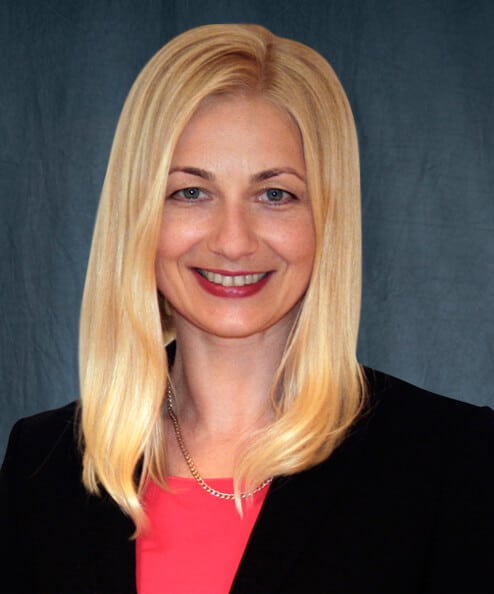Smart Future Conference: which professions are growing and which are declining?
Riga, Latvia – According to research carried out by Deloitte, technology has created more professions than it has destroyed over the last 140 years.

The revolutionary influence of technologies on the labour market will be discussed during the “LMT Smart Future” conference to be held in Riga on May 23rd, 2016. The event is organised by BIG Event in cooperation with Latvian Mobile Telephone and AJ Power, with the support of “Fima,” “Radisson Blu Hotel Latvija,” “Kapitāls,” and “Enerģija un Pasaule” magazines and “focus.lv” and “biļešu serviss.”
The organisers of the conference collated forecasts from experts across multiple industries and disciplines to predict the future of the labour market, the role of Latvia and Europe in the changing world, and the future of technology, the urban environment, infrastructure and energy.
# Couriers, postmen and taxi drivers
Over the past decade, the number of postmen and couriers in Latvia has declined by 36% from 8,600 to only 5,500. Driverless cars and drones are the future of mail delivery, and just last year the US Civil Aviation Agency allowed Amazon to deliver small packages by drone. Although delivery jobs will be lost, more people will be employed manufacturing and servicing drones, and carrying out drone traffic control.
# Travel agents
Staff.com CEO Rob Rawson predicts that travel agents will disappear by 2025 with the constant improvement of Internet travel tools. Websites such as Skyscanner, booking.com, Airbnb and TripAdvisor enable people to manage their own flights, hotels and excursions with no need for third-party assistance.
# Teachers, coaches and professors
The teaching profession will never go away, but it has evolved and adapted, as more and more information and knowledge can be found online. The Huffington Post recently published an article stating that the Massachusetts Institute of Technology (MIT) currently offers more than 2,000 courses online, with more than 130 billion downloads to date. The non-profit institution Khan Academy offers a similar number of courses, with around 100 billion total downloads.
The futurist Thomas Frey believes that in many fields, teachers will be replaced by developers of online courses and camps, personal development coaches and life coaches.
“Taking into consideration that the total amount of information is rapidly increasing, more and more data analysts will be needed, and these individuals will eventually turn into data scientists. These data scientists will be able to research huge, unstructured data blocks and find correlations that will be used to draw conclusions and make decisions. Mathematicians and statisticians will have a huge advantage in this field, as they will be able to employ their knowledge in academic and practical research. Mobile apps are still increasing in popularity, and there is a real demand for specialists in this field. I believe that this profession will continue to develop,” says Laura Kersule, Board Member and Vice President of LMT (Latvian Mobile Telephone).
# Credit specialists
Oxford University researchers Carl Benedikt Frey and Michael Osborne have concluded that credit specialists are at high risk for computerisation.
IT development has been particularly noticeable in the financial field. Banks are no longer the only institutions offering loans; there are now a multitude of credit companies which operate online, and rely on algorithms to decide whether to grant a particular individual a loan, the size of the loan and the interest rate.
The new field of FinTech (financial technology) covers loans, investments, bill payments and other services.
# Administration, accounting and HR
“Administration, data entry and processing are becoming more and more automated,” says Evita Lune, Partner at the Executive Search firm Pedersen & Partners and LMT Smart Future participant.
Technology can facilitate many back-office responsibilities, including data input, record-keeping and project reporting. There are multiple options for electronically issuing, registering and accepting invoices, monitoring budgets, preparing reports, issuing documents and similar tasks.
However, creative and competent consulting cannot be fully automated. Moreover, employers will need specialists with the skills to evaluate and define the content for the necessary reports and data analysis. Administrators and accountants will need to focus more on financial analytics, data interpretation and recommendations for further steps. At the same time, HR specialists will need to take on responsibility for motivating employees and cultivating loyalty, as well as recruitment.
 Evita Lune joined Pedersen & Partners in 2005; she is Partner, the Country Manager for Latvia and Head of the Retail Practice Group. As Partner Ms. Lune also takes on regional oversight, and through completing numerous senior level assignments Ms. Lune has established strong cooperation with clients in Poland, the Baltics, Scandinavia, Russia and CIS across such sectors as: Consumer Goods, Retail, Pharmaceutical, Manufacturing and the Professional Services sectors. Her previous experience includes three years with the Stockholm School of Economics in Riga as the Executive MBA Program Director and six years with Shell in international regional marketing management functions in Riga, Budapest and Brussels.
Evita Lune joined Pedersen & Partners in 2005; she is Partner, the Country Manager for Latvia and Head of the Retail Practice Group. As Partner Ms. Lune also takes on regional oversight, and through completing numerous senior level assignments Ms. Lune has established strong cooperation with clients in Poland, the Baltics, Scandinavia, Russia and CIS across such sectors as: Consumer Goods, Retail, Pharmaceutical, Manufacturing and the Professional Services sectors. Her previous experience includes three years with the Stockholm School of Economics in Riga as the Executive MBA Program Director and six years with Shell in international regional marketing management functions in Riga, Budapest and Brussels.
Pedersen & Partners is a leading international Executive Search firm. We operate 56 wholly owned offices in 52 countries across Europe, the Middle East, Africa, Asia & the Americas. Our values Trust, Relationship and Professionalism apply to our interaction with clients as well as executives. More information about Pedersen & Partners is available at www.pedersenandpartners.com
If you would like to conduct an interview with a representative of Pedersen & Partners, or have other media-related requests, please contact: Diana Danu, Marketing and Communications Manager at: diana.danu@pedersenandpartners.com
